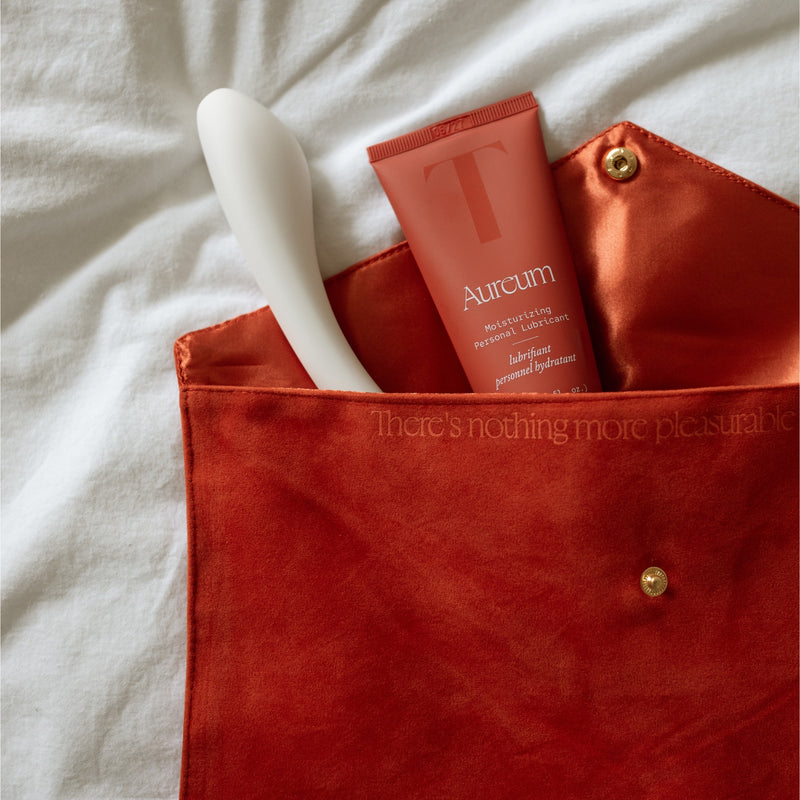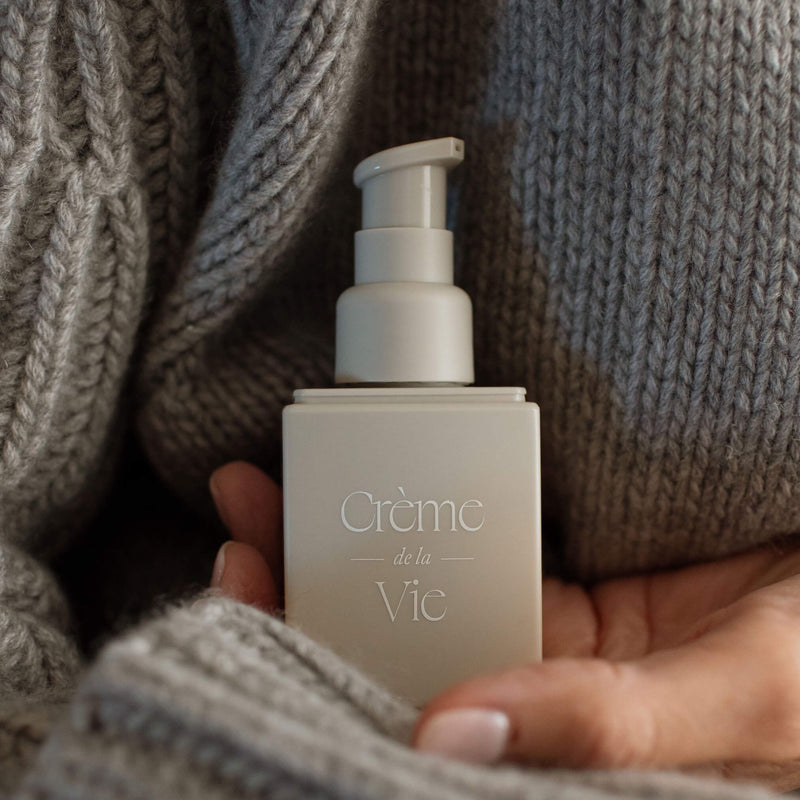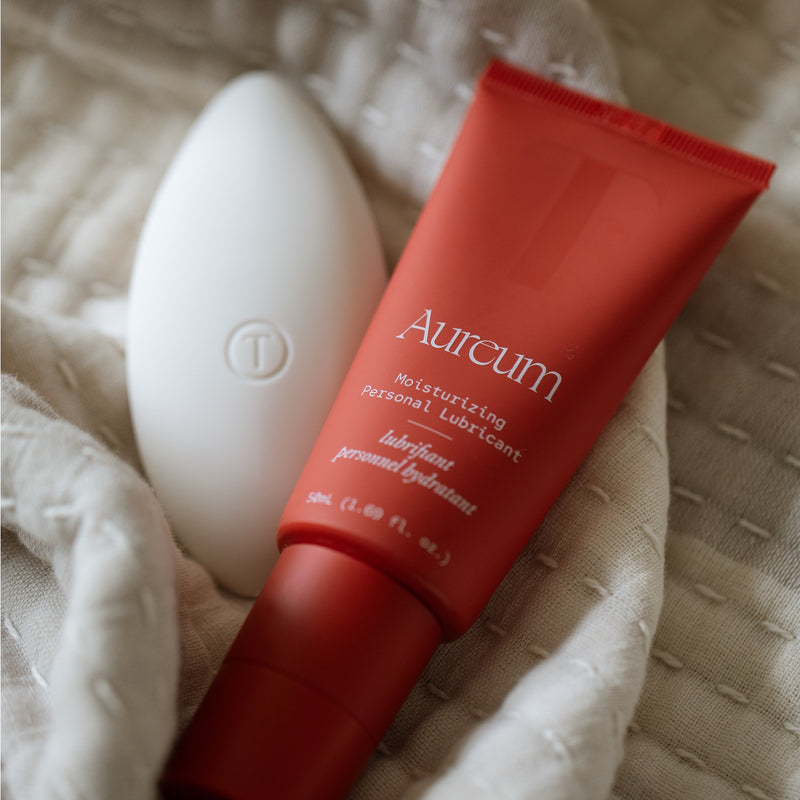“A sexual revolution at 60 something."
What if you turned 60 and realized that sex had never been a big part of your life? Would you let it go? Anna was ready to do just that.
Anna was tired. Her partner of 16 years had recently passed. For years, it had felt like everything that went wrong in life, she had to fix herself. Truth is, she never needed anybody to fix it for her - she was strong and successful. A woman you could count on to take care of herself, her household, and her full time career without skipping a beat. But it was a daily effort, even for an independent, self-sufficient woman like Anna.
For most of her life, Anna’s sexual health was less than an afterthought, if not a burden. She hadn’t been interested in sex for pretty much her entire life and in the few years before her partner passed, a combination of her vaginal pain and his erectile dysfunction made sex practically impossible.
We spoke with Anna just two months after Tabu showed up at her door. A straightforward woman with a dry sense of humor, she commands respect with her calm and honest demeanor. She’s just as likely to share an admission that she suffers from depression as she is to express cautious excitement over the possibility of starting to date again. As we spoke, a grandfather clock in the background chimed every fifteen minutes. We heard that clock chime six times, each toll a reminder of Anna’s generosity of time and of spirit.
For Anna, discovering her sexuality was just part of a major mental and physical overhaul that she tackled in the three years following her partner’s death.
What was wrong?
Anna’s period actually stopped in 2012. It seemed a little strange that none of her doctors ever mentioned anything about it - nobody prepared her for the possible symptoms of menopause, or even acknowledged that she was in a different stage of life. To Anna, who had wanted a hysterectomy her entire adult life, this initially seemed like somewhat of a blessing - “I thought hey, no more period, life is good,” she told us, laughing.
She could have ignored it for the rest of her life. Her doctors certainly were. And it’s not as if she talked about her sexual health with her partner.
“We had an okay sexual relationship, but it was challenging, and we weren’t well suited in terms of deep introspective conversations about things that matter.”
Without close friends to lean on, the only other person to talk to would have been her sister, living miles away in another state. But a shared Catholic upbringing made sex talk a no go.
So the loss of her period went unremarked upon. When the pain during sex started not too long after that, all that meant was Anna had a really good excuse not to pursue sex anymore. “It was not like I felt this extreme loss that maybe some women feel when they lose the ability to have comfortable sex,” Anna admitted.
Then in 2019, after her partner’s death, Anna saw her gynecologist for her pain and dryness. The doctor told her to just take some hormones or “put a little vitamin E up there”. This rubbed Anna the wrong way - hormones were not a part of her plan. A family history of (hormone related) stroke ruled them out completely. And the Vitamin E seemed like an obvious bandaid to Anna, who works in the healthcare field.
So she left it alone and continued on with her life. But in 2021, the writing was on the wall from the second she stepped into her gynecologist office. The doctor was late - never a good sign - and upon further inspection the doctor found that Anna’s vagina had begun to atrophy. That’s what was causing the constant pain. This wasn’t a problem she could simply move on from. It wasn’t going to magically go away.
“We’re past the point of Vitamin E,” her doctor told her. And with somewhat of a wink - “If you want to reverse the atrophy, you have to stimulate your vagina by whatever means possible.”
At this point, the diagnosis of chronic atrophy seemed right in line with all the other pain that life had to offer. “When I heard the news, I just thought, ‘what now?”’ she laughed.
By whatever means possible. Anna was no fool. She quickly figured out what that meant. It meant she had a medical directive to masturbate. Something she had never done before.
It was seemingly dire news, finding out she needed to essentially learn to stimulate herself or risk a future of bleeding, UTIs, and other issues that result from the progression of atrophy. But it came to Anna at what turned out to be the perfect time. She had recently begun a total self-care overhaul. She’d lost weight to take pressure off her back and she was dedicated to getting back on her feet after the passing of her partner.
“I’m the one who’s gotta wake up everyday and eat that frog, so I figured I better get on with it.”
Even at 60 however, Catholic guilt can be hard to overcome. Just looking up the tools she could use to “stimulate her vagina” instantly brought on images of wagging fingers from Heaven and the shame of long dead family members looking down on her quest to beat back atrophy.
“It’s doctor approved!” she shouted back to them, and continued searching.
Finding Tabu
Anna knew exactly what she wanted: straightforward information with no frills and pulling no punches. The doctor had given her some brochures to guide her on what to look for. She searched the web high and low for an acceptable sexual wellness product - a massager that could also function as a dilator, and lubricant that wasn’t full of preservatives or toxic ingredients. (One caveat she wanted us to note: if you’re searching the internet for sexual health products, be careful what you click on! You might end up with some raunchy emails in your inbox if you click the wrong link...)
Through all the sketchy websites, and even a couple of other potentially acceptable personal massagers, Anna found Tabu. It fit her needs: the right size and shape for insertion, and the lubricant’s ingredients were of appropriate quality. So for the very first time, she purchased a product that was designed to be used for her sexual health.
She never could have imagined what would happen next.
“I had my own mini sexual revolution,” Anna told us.
She started using Tabu on a regular basis. At first, she stuck with external stimulation. There was no chance of penetration for some time but she persevered - with the help of the lubricant. Her philosophy of “eating the frog” kept her resolve steady through the constant spectre of her dead relatives looking down on her disapprovingly from above.
Until using it became...pleasant. Anna started to use Tabu not just as a health aid, but even for fun. This was shocking - sex had never been fun, it had always been a utilitarian act to satisfy the needs of her partners. When we first heard from Anna in the first month after she started using Tabu, it was through an email where she told us her atrophy appeared to be reversing, and that she loved using The Kit so much that she might never need a man again.
But even that changed. Her perspective on relationships totally shifted - she told us that her new sex life was so fulfilling that she was actually excited about sharing it with a man. She expressed regret over not having open and honest communication about sex with her partners, she never even knew it was possible. And now she knows what she wants, and how to ask for it. She has a newfound confidence, a sense of herself that simply didn’t exist before.
Ready to talk
Anna came through 60 years of life without focusing on herself. Even though she’s always been independent and self-sufficient, her adult life has revolved around caring for others. She’s caring for herself now, and her new holistic self care routine has resulted in a new life. “If I had to say how excited I am about life, on a scale of one to ten - I’d give it a seven,” she told us, serious - “and for a depressed person, a person who struggles with depression, a seven is better than ever. I used to be a three.”
Anna has never wanted to talk about sex. But now? She says it’s time to share her story with not just people her own age, but younger women as well, so they know what to look out for. Her advice: don’t ignore vaginal pain, talk to your physician. And if you aren’t talking to your partner about a healthy sexual relationship, what other important things are you not talking about?
And as for the sister she never talked to about her issues with pain and atrophy? As of this writing, Anna has in fact told her sister about Tabu and already sent her one as an early Christmas gift.









